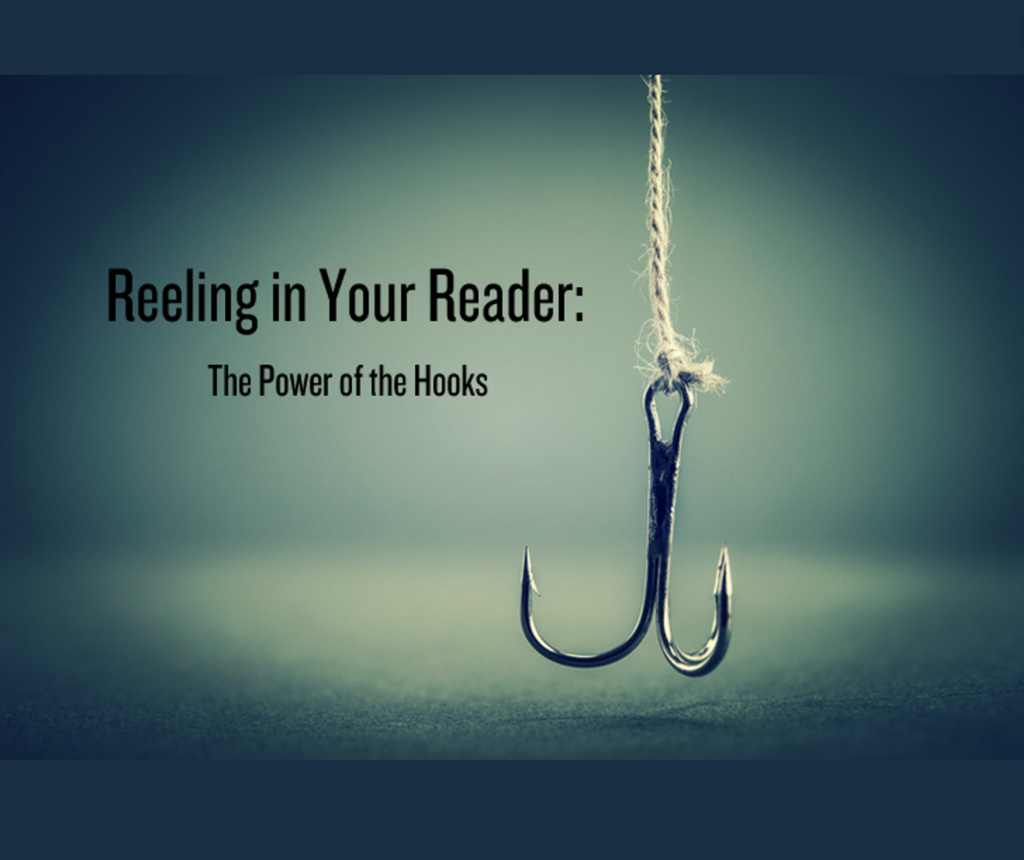Steadfast Stories: Protagonists without Change Arcs

In a steadfast arc, the character holds true to who he was in the beginning. Often when we think of characters arcs, we think of characters changing for the better: Scrooge giving up his miserly ways to show charity toward his follow men, Luke Skywalker choosing to trust in faith (the Force) to successfully hit […]
The 3 Types of Plot Goals

Stories start with a plot goal. While many writers point to conflict, or even the antagonist, as the first element of plot, in reality, it’s a goal that kicks plot off. You can’t have meaningful conflict, if there isn’t a plot goal in place. And at its heart, an antagonist is what is opposing the […]
Reeling in Your Reader: The Power of Writing Hooks

Captivating your reader’s attention and submerging them deep inside the story world is one of the universal goals for writing hooks. We want our readers to experience the heart hammering, gasping for breath, sitting at their seat’s edge wondering how in the midnight sky their beloved character is going to escape an impossible conundrum. And […]
Considering Crucibles in Writing

Crucibles in writing force characters together, which can strengthen your story’s conflicts. In everyday life, a crucible is a container used to hold metal or liquid as it boils. For example, to melt gold, one takes a heavy bowl made from steel and sets it in a fire. The steel, which can withstand higher temperatures […]
Writing the RIGHT Details

Writing the right details will help you craft more immersive, meaningful, and layered stories. If you’ve been writing very long, you’ll know the importance of mentioning details in your writing. Appealing to the senses and attention to detail is what will ground your reader and bring your story to life. Details often make it so […]
A Checklist for Writing Your Story

Use this checklist for writing your story, and you will write even stronger stories. David Farland was a best-selling author and contest judge for the world’s largest short story competition. When I used to write for competitions, I would make lists of ways that judges might look at my work in order to grade it. […]
5 Keys to a Satisfying Denouement

Often as writers, we put a lot of our focus on the starting, climax, and middle of a story, and the denouement or falling action may be somewhat of an afterthought. If your experience was like mine, you were kind of taught that the denouement should just be a quick wrap-up that can end the […]
How to Use Dialog Tags Terribly

Dialog tags help the reader know who is speaking the dialog. Recently, I shared how you could write bad dialog in your stories. The truth is, though, if you really want to write wretched dialog, you should consider working on your dialog tags. Here are a few options that you might not have considered. I […]
Pacing a Story: What’s the Rush?

Pacing a story appropriately will keep readers engaged. Unfortunately, many mistakenly think this means the story needs to be rushed. I see a lot of trends in today’s literature. Perhaps the biggest one is that every writer seems to be in a rush. Many new writers try to keep the pacing blazing hot. They’ve heard […]
4 Ways to Avoid a Dead-End Writing Career

A writing career isn’t easy, but these four things will help you avoid a dead-end one. Have you ever seen a talented new writer rise to seeming stardom, only to crash and burn within a couple of years? I recall being a new writer and studying my contemporaries with a mixture of awe and fear, […]
